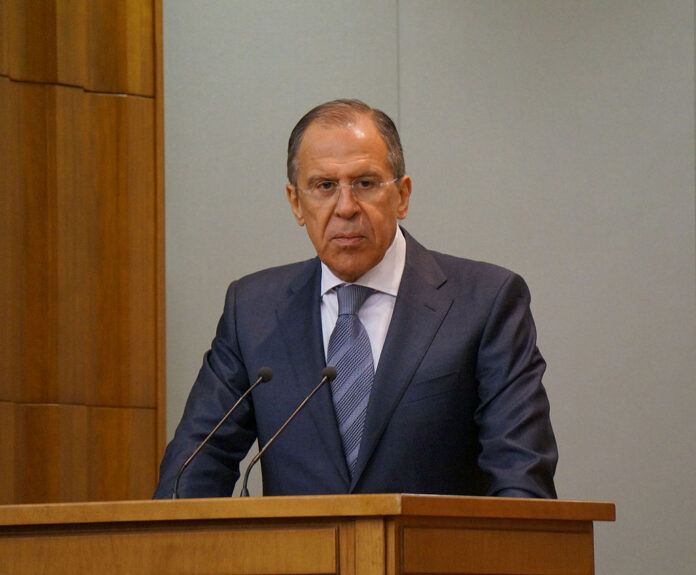As Moscow strengthens ties with African nations, concerns mount over geopolitical entanglements and global influence
Recent diplomatic moves by Russia in Africa, underscored by Foreign Minister Sergey Lavrov’s visits to Guinea, the Republic of the Congo, and Burkina Faso, highlight Moscow’s intensified engagement with the continent. This marks Lavrov’s sixth official visit to Africa since 2022, signalling a significant shift in Russian foreign policy towards Africa amid heightened global tensions.
The backdrop to Russia’s expanded presence in Africa can be traced back to the Russo-Ukrainian war, which escalated geopolitical rivalries and prompted European accusations of Russian interference across the European Union. Despite Kremlin assertions that its African engagements are not aimed at countering Western influence, anti-Western rhetoric often accompanies high-profile Russian visits to the continent.
Embed from Getty ImagesRussia’s updated Foreign Policy Concept in 2023 elevated Africa’s strategic importance, marking it as a “distinctive and influential centre of world development.” This shift reflects a broader strategy to leverage Africa’s significant role as the largest voting bloc in the United Nations, comprising 54 member states out of 193.
During the initial stages of the Ukraine conflict, both Russia and Ukraine actively sought African support, exacerbating global food, energy, and financial systems disruptions. Russia capitalized on these challenges, portraying itself as a reliable alternative partner for African nations facing sanctions and isolation.
Despite these efforts, Russia’s economic footprint in Africa remains modest compared to other global powers. In 2022, Russia’s trade volume with Africa stood at US$18.4 billion, significantly lower than China, Italy, France, the US, and Germany. African imports from Russia also remain below 2%, indicating limited economic integration despite diplomatic overtures.
The geopolitical landscape further evolved with Ukraine’s successful efforts to mitigate export restrictions on grains in 2023, reducing the urgency of food security as a bargaining chip for Russian engagement in Africa. Moreover, many African states opted for non-alignment in the Russo-Ukrainian conflict, dampening initial expectations of widespread support for Russia.
Nevertheless, Russia’s bilateral engagements have yielded strategic gains, particularly in regions like the Sahel, where political instability created opportunities for alternative partnerships. Nations like Guinea and Burkina Faso, facing sanctions and political turmoil, have found in Russia a willing partner, particularly in military and security cooperation.
Russia’s approach has included military agreements, training programs, and arms supplies, bolstering its influence in regions where traditional powers like France have receded. This shift is evident in Russia’s expanding presence in Lusophone Africa, where all six Portuguese-speaking countries have signed military agreements, raising concerns among traditional Western allies.
Analysis
Political Perspective: Russia’s intensified engagement in Africa reflects a strategic manoeuvre to challenge Western dominance and expand its geopolitical influence. By forging bilateral agreements and aligning with states marginalized by Western sanctions, Russia seeks to establish itself as a key player in African geopolitics.
Social Implications: Socially, Russia’s growing influence raises concerns about the alignment of African states with global powers amidst geopolitical rivalries. It prompts debates on sovereignty, dependency, and the implications of shifting alliances on regional stability and development.
Racial Dynamics: While race may not be a central issue, Russia’s engagement intersects with Africa’s diverse demographics and historical ties with former colonial powers, influencing perceptions and alignments in international relations.
Gender Considerations: Gender dynamics in this context focus on the participation and impact of women leaders and populations in African nations affected by Russian engagements, highlighting broader societal impacts of geopolitical shifts.
Economic Impact: Economically, Russia’s engagements aim to diversify African states’ economic partnerships but face challenges in achieving substantial economic integration compared to China and Western partners. This dynamic shapes Africa’s economic strategies amidst global power plays.
